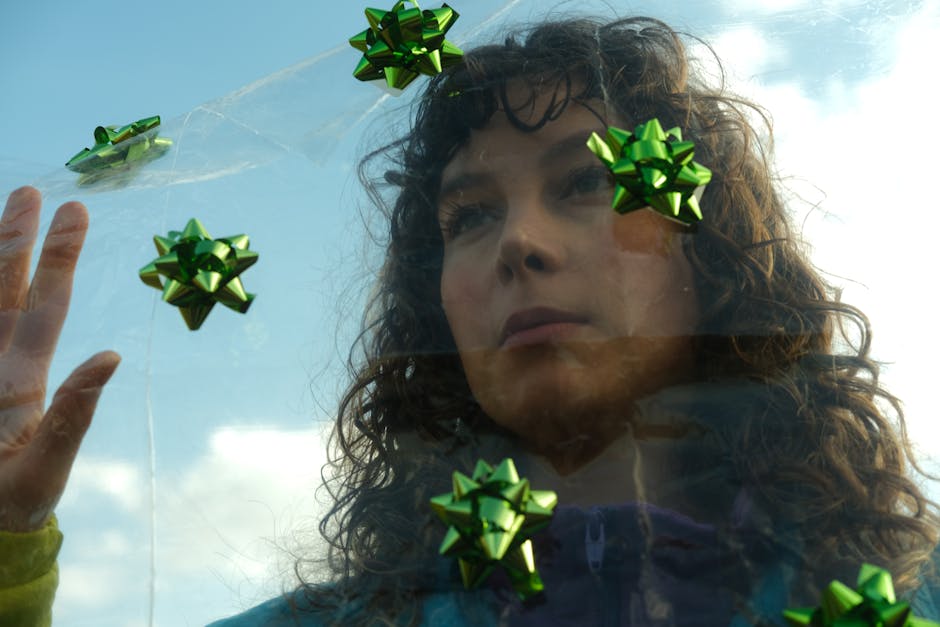My Guide to Educational Podcasts for Lifelong Learners.
My Guide to Educational Podcasts for Lifelong Learners
In a world brimming with information, the quest for continuous learning isn’t just a hobby; it’s a way of life for many, including me. For years, I’ve sought out avenues to expand my knowledge, challenge my perspectives, and simply satisfy an insatiable curiosity. While books and documentaries remain stalwarts in my learning arsenal, there’s one medium that has truly revolutionized my journey: educational podcasts. They’re not just background noise; they are portable universities, delivering expert insights, compelling narratives, and deep dives into virtually any subject imaginable, right into my ears.
This isn’t just a list of recommendations; it’s a personal guide, born from countless hours of listening, sifting, and discovering. My aim is to share how I’ve integrated educational podcasts into my daily routine to foster a robust and engaging lifelong learning practice. If you, like me, are driven by the desire to keep growing, adapting, and understanding the world better, then tune in, because this guide is for you.
My Personal Journey into the World of Educational Podcasts
My foray into educational podcasts wasn’t a sudden leap but a gradual realization of their immense potential. Initially, I saw them as a way to fill “dead time” – commutes, chores, gym sessions. But what started as a casual listen quickly evolved into a core pillar of my learning strategy. I discovered that these audio programs offered a unique blend of accessibility and depth that traditional learning methods often couldn’t match.
What truly hooked me was the ability to learn from leading experts, scientists, historians, and thinkers from around the globe, all while doing something else. It allowed me to transform fragmented moments into productive learning opportunities. Instead of feeling guilty about not having dedicated study time, I was absorbing complex ideas, exploring new fields, and challenging my assumptions, all through the power of sound. This shift from passive consumption to active, intentional listening has been fundamental to how I approach lifelong learning today.
The Spark: From Curiosity to Consistent Learning
The initial spark came from a desire to understand complex current events better. News podcasts provided context, but soon I yearned for more fundamental knowledge. That led me to podcasts explaining economics, philosophy, and scientific breakthroughs in layman’s terms. It was like having a personal tutor for every subject I was curious about. The sheer variety available meant I could pivot from ancient history to artificial intelligence in a single afternoon, fostering a truly interdisciplinary approach to my learning. This constant exposure to new ideas keeps my mind agile and my problem-solving skills sharp. Research consistently highlights the benefits of continuous learning for both personal and professional development, and podcasts have become my primary vehicle for this.
Crafting My Audio Learning Library: Discovering Podcasts That Truly Educate
With millions of podcasts available, finding the gems that truly educate can feel like searching for a needle in a haystack. Over time, I’ve developed my own system for curating a rich and diverse audio learning library. It’s less about stumbling upon a show and more about strategic exploration.

My first port of call is usually recommendations from trusted sources – fellow lifelong learners, reputable blogs, or even guests on podcasts I already enjoy. When an expert mentions another podcast they listen to, that’s usually a strong signal for me to check it out. I also pay close attention to the “related shows” sections on podcast platforms, which often unearth unexpected treasures. Furthermore, I don’t shy away from exploring niche topics that align with my current interests. Sometimes, the most profound insights come from highly specialized shows.
My Personal Filters for Quality Educational Content
- Expertise & Credibility: Is the host or guest genuinely knowledgeable in their field? Do they cite sources or present evidence? I look for shows hosted by academics, journalists, or recognized practitioners.
- Clarity & Engagement: Can I easily understand complex topics? Is the discussion engaging, or does it feel like a dry lecture? The best educational podcasts simplify without oversimplifying.
- Production Value: While not the sole determinant, good audio quality and editing make a significant difference in listenability. Distracting background noise or poor editing can detract from even the most brilliant content.
- Unbiased Perspective (where applicable): For topics involving current events or social issues, I seek out podcasts that present multiple viewpoints or strive for journalistic integrity.
- Actionable Insights: Does the podcast offer new ways of thinking, practical advice, or inspire further research? I want content that sparks further engagement, not just passive absorption.
Beyond Lectures: The Diverse Educational Niches I Explore Through Podcasts
The beauty of educational podcasts lies in their incredible breadth. My personal library spans far beyond traditional academic subjects, embracing everything from neuroscience to narrative history, and even the art of critical thinking. Here are some of the key niches that have become indispensable to my lifelong learning journey:
Deep Dives into Science and Technology
Understanding the natural world and the accelerating pace of technological innovation is crucial. Podcasts in this category break down complex scientific concepts, explore new discoveries, and discuss the ethical implications of emerging technologies. They’ve helped me grasp quantum physics, artificial intelligence, and climate science in ways textbooks never could. I particularly appreciate those that interview the scientists themselves, offering firsthand accounts of discovery.
History and Culture: Unpacking the Past
To understand the present, we must comprehend the past. History podcasts, particularly narrative ones, bring bygone eras to life, making historical events and figures incredibly relatable. They’ve allowed me to explore ancient civilizations, pivotal moments in modern history, and the evolution of cultural phenomena. These aren’t just dry recitations of facts; they are immersive storytelling experiences that reveal the human experience across time.
Philosophy and Critical Thinking: Sharpening the Mind
Perhaps the most transformative niche for me has been philosophy and critical thinking. These podcasts challenge assumptions, encourage logical reasoning, and explore fundamental questions about existence, ethics, and knowledge. They’ve taught me how to dissect arguments, identify biases, and think more clearly about complex issues. This mental workout is invaluable for making informed decisions and navigating an increasingly complex world. For those interested in improving their reasoning, a deep dive into the science behind effective learning often starts with critical thought.
Personal Development and Psychology: Understanding Ourselves
Lifelong learning isn’t just about external knowledge; it’s also about understanding ourselves and improving our well-being. Podcasts focusing on psychology, behavioral science, and personal growth offer insights into human behavior, habits, and mental health. They provide practical tools and frameworks for self-improvement, fostering resilience and emotional intelligence. This area has been instrumental in helping me navigate personal challenges and build better habits.
Optimizing My Ear-Time: Strategies for Deep Learning from Audio
Simply listening to a podcast isn’t enough for deep learning. Over time, I’ve developed several strategies to ensure that my ear-time translates into genuine knowledge acquisition and retention. It’s about transforming passive listening into an active, engaging learning experience.
Active Listening and Note-Taking
I treat educational podcasts like virtual lectures. When possible, I listen in an environment where I can focus, and I keep a digital or physical notebook handy. Jotting down key ideas, unfamiliar terms, or questions that arise helps solidify the information. This isn’t about transcribing; it’s about capturing the essence and stimulating further thought. Sometimes, I’ll pause a podcast to look up a concept or person mentioned, turning the listening experience into a multi-modal learning session. This is a core part of what I’d call active listening techniques.
Connecting the Dots: Integrating New Knowledge
True learning happens when new information connects with existing knowledge. After listening, I often spend a few minutes reflecting: How does this new concept relate to something I already know? Does it challenge a previous understanding? This integration process helps build a more robust mental framework and makes the knowledge more accessible for future recall. I also try to discuss interesting points with friends or colleagues, which further reinforces the learning and offers new perspectives.
Repetition and Review
Not every podcast warrants a re-listen, but for particularly dense or impactful episodes, I don’t hesitate to revisit them. Sometimes, I’ll even listen at a




Post Comment